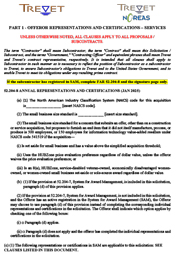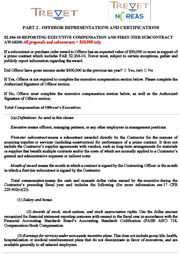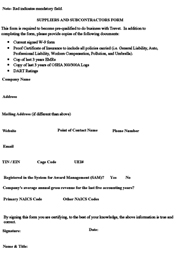Subcontractors
Thank you for your interest in Trevet.
If your firm has joined a Trevet-led team that is pursuing or has been awarded a contract, you may have been directed to this page and requested to completed and submit one or more of the forms below.
If your firm would like to become pre-qualified to do business with Trevet, please complete and submit the Suppliers and Subcontractors form below.
Submit Forms Below
Please complete your form and submit it below. If you have any questions, please email contracts@trevetinc.com.



